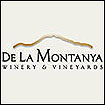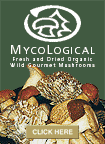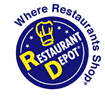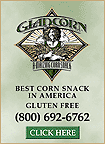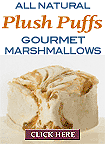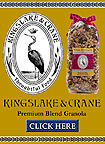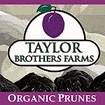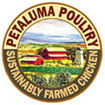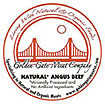Sustainability, Organics, and Snoqualmie
Nestled
against the base of the Horse Heaven Hills
in Prosser, Washington, Snoqualmie Winery
has been making wines that reflect the balance
and graceful beauty of our small-town surroundings
for over three decades. As part of the winery's
commitment to maintaining and advancing
the natural quality of the Northwest, winemaker
Joy Andersen and her team take an active
interest in the local community and environment,
and are continually improving Snoqualmie's
sustainable and organic practices to ensure
the quality of this special land for future
generations.
Snoqualmie's
longtime dedication to making sustainable
and organically produced wines is a natural
continuation of our parent company Ste.
Michelle Wine Estates' commitment to using
sustainable agricultural practices in all
of the company's 3500 vineyard acres in
Washington state.
I.
SUSTAINABILITY
What
is sustainability?
Sustainability aims to promote practices
that are environmentally responsible, socially
equitable, and economically viable in all
aspects of agriculture, winemaking, and
development.
A
critical goal of Snoqualmie's sustainability
and organics program, and these movements
in general, is to reduce our "ecological
footprint" - the impact our actions
have on our natural surroundings. At Snoqualmie,
we've always believed that taking good care
of our vineyards and local environment are
essential steps towards making the best
wines possible. This commitment to doing
right by our local community and environment
forms the core of our sustainability program.
Is
sustainable the same as organic?
No. While organic practices are specific
to agriculture and are highly regulated
by the USDA, sustainable practices apply
not only to agriculture, but to packaging,
fuel and waste management, and employee
safety, among other things.
Does
the USDA regulate compliance with sustainable
practices?
Unlike organics, compliance and guidelines
for sustainability are self-regulating.
Along with our parent company, Ste. Michelle
Wine Estates, Snoqualmie has become a driving
force in introducing sustainable practices
into Washington's vineyards and wineries.
Kevin
Corliss, Ste. Michelle's Director of Viticulture,
was instrumental in the development of Vinewise,
the Washington Guide to Sustainable Viticulture
available online to the state's wine grape
growers and vintners. Snoqualmie winemaker
Joy Andersen is currently working to establish
a similar set of guidelines for the state's
wineries.
How
does Snoqualmie practice sustainability?
Sustainability is a tool that is used in
both the vineyards (through pest, soil,
and water management) and the winery (through
energy and water conservation, waste reduction
and management, and organic winegrowing).
Sustainability
in the Vineyards
The same assets that make Washington a great
place to make wine - low rainfall, minimal
disease and few vineyard pests, and great
soil - give us an advantage in our ability
to implement sustainable vineyard practices
relating to water and pesticide usage.
Ste.
Michelle Wine Estates' vineyard sustainability
program is in place in all of the company's
Washington vineyard acreage and currently
focuses on three main areas in which our
viticulture staff continually analyzes and
fine-tunes operations: pest, soil and plant,
and water management. In addition, special
USDA-certified organic vineyard blocks are
the sources of Snoqualmie's Naked line of
organically grown wines.
Pest Management:
* Maintaining and expanding the registered
virus-free mother block.
*
Taking a leadership role in information
sharing and assistance to contracted growers.
*
Dramatically decreased use of manmade pest
control agents and increased reliance on
soft materials such as biodegradable soaps,
oils, and plant extracts.
*
Use of low-impact vehicles such as ATVs
throughout the vineyards to increase fuel
and work efficiency.
Soil and Plant Management:
* Reduction of soil erosion through a green
cover of beneficial native grasses and cereal
grains, which also provide a habitat to
attract beneficial insects to the vineyards.
Water Management:
*
Use of weather stations and soil moisture-measuring
probes to monitor water use and ensure that
grapevines don't compete with cover crops
for water.
*
Implementation of drip irrigation systems
for increased conservation and efficiency.Organic
Winegrowing:
*
In addition to the sustainable farming practices
used in all of Ste. Michelle's vineyards,
378 acres (11% of the company's total owned
acreage) are certified organic and used
exclusively to create Snoqualmie's Naked
line of organically grown wines.
*
In order to be certified organic, additional,
specially approved methods of pest and disease
control, fertilization, and cultivation
must be implemented.
Sustainability
at the Winery
Snoqualmie winemaker Joy Andersen has always
believed that the best wines are made with
excellent grapes and little intervention
or processing. This philosophy makes Andersen
a natural to lead Ste. Michelle's sustainability
and organics efforts at Snoqualmie.
Andersen
and her team are currently focused on increasing
natural and sustainable methods in three
major aspects of winery operations: energy
conservation, winery water conservation
and quality and solid waste reduction and
management.
Energy
Conservation:
*
In 2005-2006, the winery decreased energy
use 6% from 2004-2005.
*
A move from propane-powered to battery-powered
forklifts in the cellar and installation
of new, energy-efficient lighting and motion
light sensors were keys to energy conservation.
Winery Water Conservation and Quality:
*
From 2004-2005 to 2005-2006, water use at
the winery dropped 8%.
*
Conservation efforts include
*
Employee education
*
Use of new, water-conserving nozzles on
all hoses
*
Storing operational waste water on-site
in retention pools which naturally evaporate
throughout the year
*
Planting water-efficient landscaping around
winery grounds.
Solid Waste Reduction & Management:
*
Marketing materials and wine packaging are
created in partnership with environmentally-friendly
vendors using recycled paper and, in some
cases, vegetable-based inks.
*
The winery recycling program includes paper,
cardboard, and aluminum waste products.
*
Grape pomace - organic materials such as
grape skins and pulps leftover from the
winemaking process - is sold and recycled
for use as fertilizer and livestock feed.
II.
ORGANICS
What
is Organic?
The term "organic" refers to the
way agricultural products such as produce
and wine are grown and processed. In order
to use the term "organic," a product
must be farmed, produced, and certified
according to a strict set of guidelines
regulated by the USDA relating to use of
natural alternatives to manmade pest control
agents, herbicides, and fertilizers. These
guidelines assure consumers that the product
maintains the organic integrity that begins
on the farm or, in our case, the vineyard.
What
is an organic wine?
An organic wine is defined by the USDA's
National Organic Program as "a wine
made from organically grown grapes and without
any added sulfites". By this restriction,
if sulfites are added, the wine is referred
to as "wines made from organic grapes"
(or organically grown grapes.)
What
are Snoqualmie's Naked and Nearly Naked
wines?
Snoqualmie's Naked and Nearly Naked wines
are produced from 100% organically grown
grapes from our certified organic vineyards
in Washington state. The wines are produced
and bottled in an organically certified
facility, following all of the processing
guidelines set forth by the USDA for organic
wines.
Snoqualmie Naked and Nearly Naked wines
contain minimal added sulfites, within specific
organic guidelines, to preserve the shelf
life and to help retain their fresh and
fruity quality. Naked wines contain less
than 65 parts per million of sulfites (SO2),
compared to conventionally produced white
wines which typically contain 80-100 parts
per million of SO2.
Why
do we add sulfites?
Sulfites are a natural by-product of fermentation,
and all wines naturally contain about 8-40
parts per million of SO2. Additionally many
foods such as dried fruits, some fish and
shellfish, and soy products naturally contain
some sulfites. The minimal sulfites that
we add to our Naked wines contribute to
the taste, preservation, and aroma of the
wines as well as inhibiting bacterial spoilage
and oxidation. Sulfites have been used for
centuries to protect wine from spoilage,
and because of the alcohol and ph qualities
of wine, only a small amount is needed to
ensure stability.
III.
FUTURE GOALS
Sustainability
is not a process that happens overnight.
Rather, a commitment to sustainability involves
continual re-assessment and implementation
of new ideas in a continuing quest to ensure
the quality and availability of our natural
resources for generations to come.
In
the upcoming year, both Ste. Michelle Wine
Estates and Snoqualmie Winery will seek
to further our sustainable and organic practices
in a variety of ways. Future goals for our
viticulture team include:
*
Development of an organic technical internship
to encourage education and practical experience
in organic viticulture for current enology
and viticulture students.
*
Use of bio-fuel, a renewable energy source
derived from organic materials, in vineyard
vehicles on a trial basis during the 2007
harvest.
*
Addition of additional certified organic
acreage to support Snoqualmie's organic
program of Naked wines.
*
Completion of a Washington Associate of
Wine Grape Growers self-assessment in sustainable
methods for the 2008 season.
* Work with the Department of Wildlife to
manage non-vineyard landscaping for increased
wildlife and habitat. In addition to these
goals, Snoqualmie Winery has set its sight
on further reducing its ecological footprint
by:
*
Researching other forms of alternative power,
such as solar energy, to run the cellar
pumps and heat the water needed for our
winemaking processes.
*
Continued water conservation and management
through cleaning and recycling of waste
water for re-use in the vineyards or reparation
of neighboring wetlands.
*
Creation of a glass recycling program at
the facility to accompany the existing paper,
cardboard, and aluminum recycling programs
and dramatically cut down on waste from
the bottling line and cellar.
|




